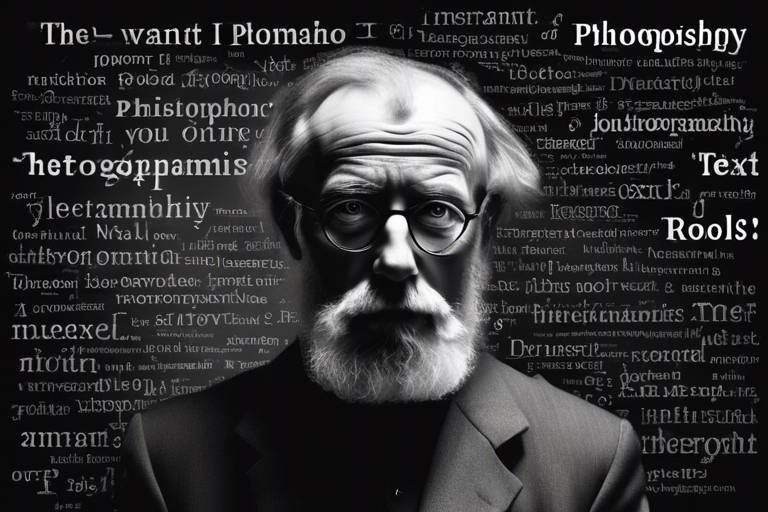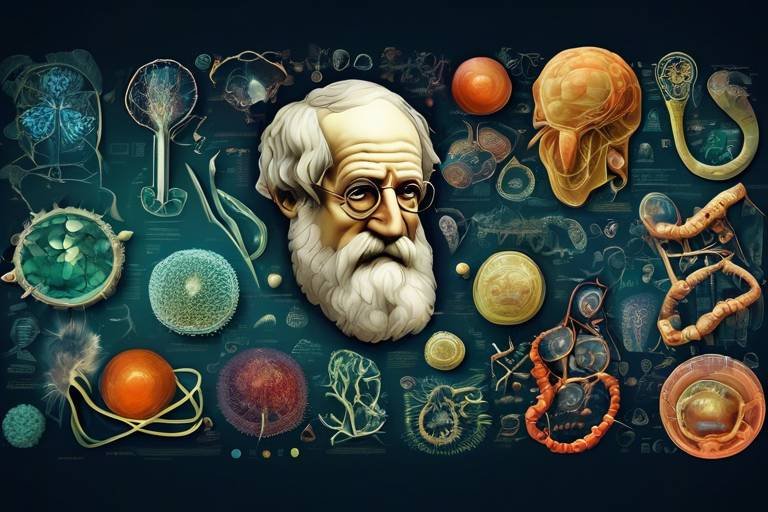Human Evolution - The Intersection of Philosophy and Science
The journey of understanding human evolution is not just a scientific endeavor; it’s a philosophical exploration as well. Imagine standing at the crossroads of two powerful domains—science, with its empirical rigor, and philosophy, with its profound questions about existence. Together, they create a vibrant tapestry that helps us unravel the mysteries of what it means to be human. This intersection is fascinating because it invites us to ponder not only where we came from but also who we are and what our future may hold.
As we delve into the intricacies of human evolution, we find ourselves asking questions that resonate deeply within our consciousness. For instance, how did we evolve from simple organisms into complex beings capable of abstract thought and moral reasoning? What does our evolutionary history reveal about our nature and identity? These inquiries are not merely academic; they touch on the core of our existence, prompting us to reflect on our place in the universe.
Scientific discoveries, especially in the fields of genetics and paleontology, have provided us with a wealth of information about our ancestors. Fossils tell stories of ancient hominins, while DNA analysis uncovers the intricate relationships that bind us to them. Yet, as we piece together the puzzle of human evolution, philosophical questions emerge, challenging us to consider the implications of these findings. Are we merely products of our biology, or do we possess a unique essence that transcends our evolutionary past?
This dialogue between philosophy and science is not one-sided. Scientific advancements inform philosophical debates, while philosophical inquiries guide scientific exploration. For example, the concept of natural selection—a cornerstone of evolutionary theory—raises ethical questions about survival, competition, and cooperation. How do we reconcile the ruthless nature of evolution with our aspirations for a compassionate society? This interplay creates a rich ground for discussion, where both disciplines can learn and grow from each other.
As we navigate this complex landscape, we must also consider the role of culture in shaping our evolutionary journey. Cultural practices influence not only our behaviors but also our biology, leading to a phenomenon known as gene-culture coevolution. This concept highlights how our social structures, beliefs, and practices can impact our evolutionary trajectory. For instance, the development of agriculture transformed human societies, leading to significant changes in diet and health, which in turn affected our genetic makeup.
In conclusion, the intersection of philosophy and science in the study of human evolution is a dynamic and enriching space. It challenges us to think critically about our origins and our future, urging us to embrace the complexity of our existence. As we continue to explore this fascinating relationship, we are reminded that understanding what it means to be human is an ongoing journey—one that requires an open mind and a willingness to engage with both the scientific and the philosophical.
- What is human evolution?
Human evolution refers to the gradual process by which our species, Homo sapiens, developed from earlier hominins through a series of biological and cultural changes. - How do philosophy and science intersect in the study of human evolution?
Philosophy raises fundamental questions about existence, morality, and identity, while science provides empirical evidence and theories that inform these philosophical inquiries. - What role does natural selection play in human evolution?
Natural selection is a mechanism by which advantageous traits become more common in a population, shaping the physical and behavioral characteristics of modern humans. - How does culture influence human evolution?
Cultural practices can affect biological evolution through gene-culture coevolution, where social behaviors influence genetic changes over time. - What are the ethical implications of evolutionary biology?
The study of evolutionary biology raises questions about our responsibilities towards other species and the environment, prompting discussions on conservation and biodiversity.

The Philosophical Foundations of Human Evolution
Philosophy serves as a vital lens through which we can examine the profound implications of human evolution. It invites us to ponder our very existence—who we are, and what it means to be human. This inquiry extends beyond mere biological origins; it delves into the essence of consciousness and the moral dimensions that accompany our evolutionary narrative. Have you ever wondered how our understanding of consciousness shapes our perception of free will? Or how the evolutionary process influences our ethical responsibilities toward one another and other species?
At the heart of this philosophical exploration lies the question of identity. Are we merely products of our genetic makeup, or is there something more that defines our humanity? This question challenges us to consider the intricate relationship between our biological heritage and our capacity for thought, emotion, and moral judgment. For instance, some philosophers argue that our ability to reflect on our actions and their consequences is what sets us apart from other species. This capacity for self-reflection can be traced back to our evolutionary past, where survival often depended on making complex decisions based on social dynamics.
Moreover, the ethical implications of evolutionary theory invite us to reconsider our responsibilities. As we learn more about our connections to other species, we must grapple with the moral obligations that arise from this knowledge. Are we stewards of the Earth, or are we merely exploiting it for our benefit? This dilemma is particularly pressing in an age where environmental degradation and species extinction are rampant. The philosophical inquiry into these issues prompts us to question our values and the impact of our choices on the planet and its inhabitants.
To further illustrate the intersection of philosophy and human evolution, consider the following key areas of inquiry:
- Consciousness: What is the nature of consciousness, and how did it evolve?
- Free Will: Does evolution undermine the concept of free will, or does it coexist with our capacity for choice?
- Ethics: How does our understanding of evolution shape our moral obligations toward other beings?
These questions not only enrich our understanding of human evolution but also challenge us to engage in a deeper dialogue about our place in the world. By combining philosophical inquiry with scientific discoveries, we can begin to unravel the complexities of what it means to be human. This interdisciplinary approach encourages us to think critically about our past and its implications for our future. After all, understanding our origins is not just an academic exercise; it is a journey that shapes our identity, values, and responsibilities in an ever-changing world.
As we navigate through the rich tapestry of human evolution, let us remain open to the myriad of perspectives that philosophy offers. It is through this lens that we can appreciate the full spectrum of our existence, embracing both the scientific marvels of our biological evolution and the profound ethical questions that arise from it.
- What is the relationship between philosophy and science in the context of human evolution?
Philosophy provides a framework for understanding the implications of scientific discoveries, prompting deeper questions about existence, consciousness, and morality. - How does evolutionary theory challenge traditional views of humanity?
It raises questions about free will, identity, and our ethical responsibilities toward other species and the environment. - Why is understanding our evolutionary past important?
It helps us make informed decisions about our future, shaping our values and responsibilities as stewards of the Earth.

Scientific Discoveries in Human Evolution
The journey of understanding human evolution has been nothing short of a thrilling adventure, marked by groundbreaking scientific discoveries that continue to reshape our knowledge. Recent advancements in fields like genetics and paleontology have unveiled the intricate tapestry of our ancestral lineage, painting a vivid picture of how we came to be. Imagine standing on the brink of a vast chasm, peering into the depths of time, where ancient hominins roamed the earth, each step echoing the evolutionary changes that would eventually lead to the emergence of modern humans. This exploration is not just about bones and fossils; it’s about uncovering the very essence of what it means to be human.
One of the most significant breakthroughs in our understanding of human evolution has been the analysis of ancient DNA. By extracting genetic material from fossils, scientists have been able to trace the lineage of various hominin species and establish connections that were previously unknown. For instance, the discovery of Neanderthal DNA in modern humans has sparked discussions about interbreeding and the shared heritage between species. This revelation has profound implications, challenging the notion of a linear evolutionary path and suggesting instead a complex web of interactions among different hominin groups.
Moreover, the study of fossils has provided crucial insights into the physical characteristics and behaviors of our ancestors. The fossil record, though incomplete, acts as a time capsule, offering glimpses into the adaptations that allowed early hominins to survive in a variety of environments. Take, for example, the famous Australopithecus afarensis, known for the iconic fossil named "Lucy." Her discovery not only showcased bipedalism but also highlighted the evolutionary advantages of walking on two legs, such as freeing the hands for tool use and carrying objects, which played a pivotal role in our development.
In addition to genetics and paleontology, the field of archaeology has made significant contributions to our understanding of human evolution. The tools and artifacts left behind by our ancestors serve as a testament to their ingenuity and adaptability. For instance, the emergence of stone tools marked a revolutionary leap in cognitive abilities, allowing early humans to manipulate their environment in unprecedented ways. These tools tell a story of survival, innovation, and the gradual evolution of culture.
To illustrate the impact of these scientific discoveries, consider the following table, which summarizes some key hominin species and their contributions to our understanding of human evolution:
| Hominin Species | Key Characteristics | Significance |
|---|---|---|
| Australopithecus afarensis | Bipedal, small brain size | First evidence of bipedalism |
| Homo habilis | Use of tools, larger brain | Considered the first member of our genus |
| Homo neanderthalensis | Robust build, complex tools | Interbreeding with modern humans |
| Homo sapiens | Large brain, advanced culture | Our own species, characterized by complex language and art |
As we delve deeper into the genetic and archaeological records, we uncover a narrative that intertwines biology with the very fabric of our existence. This narrative not only informs us about our past but also raises questions about our future. How will our understanding of evolution influence our perception of identity, morality, and our place in the world? The answers lie in the ongoing dialogue between science and philosophy, as we strive to comprehend the full implications of our evolutionary journey.
- What is the significance of studying human evolution? Understanding human evolution helps us grasp our origins, the development of traits, and the biological and cultural factors that shape humanity.
- How do genetics play a role in human evolution? Genetic studies reveal the connections between ancient and modern humans, highlighting interbreeding events and the shared genetic heritage among species.
- What can fossils tell us about our ancestors? Fossils provide physical evidence of early hominins’ characteristics, behaviors, and adaptations to their environments.
- How does culture influence evolution? Cultural practices can affect biological evolution through mechanisms like gene-culture coevolution, impacting behaviors and societal structures.
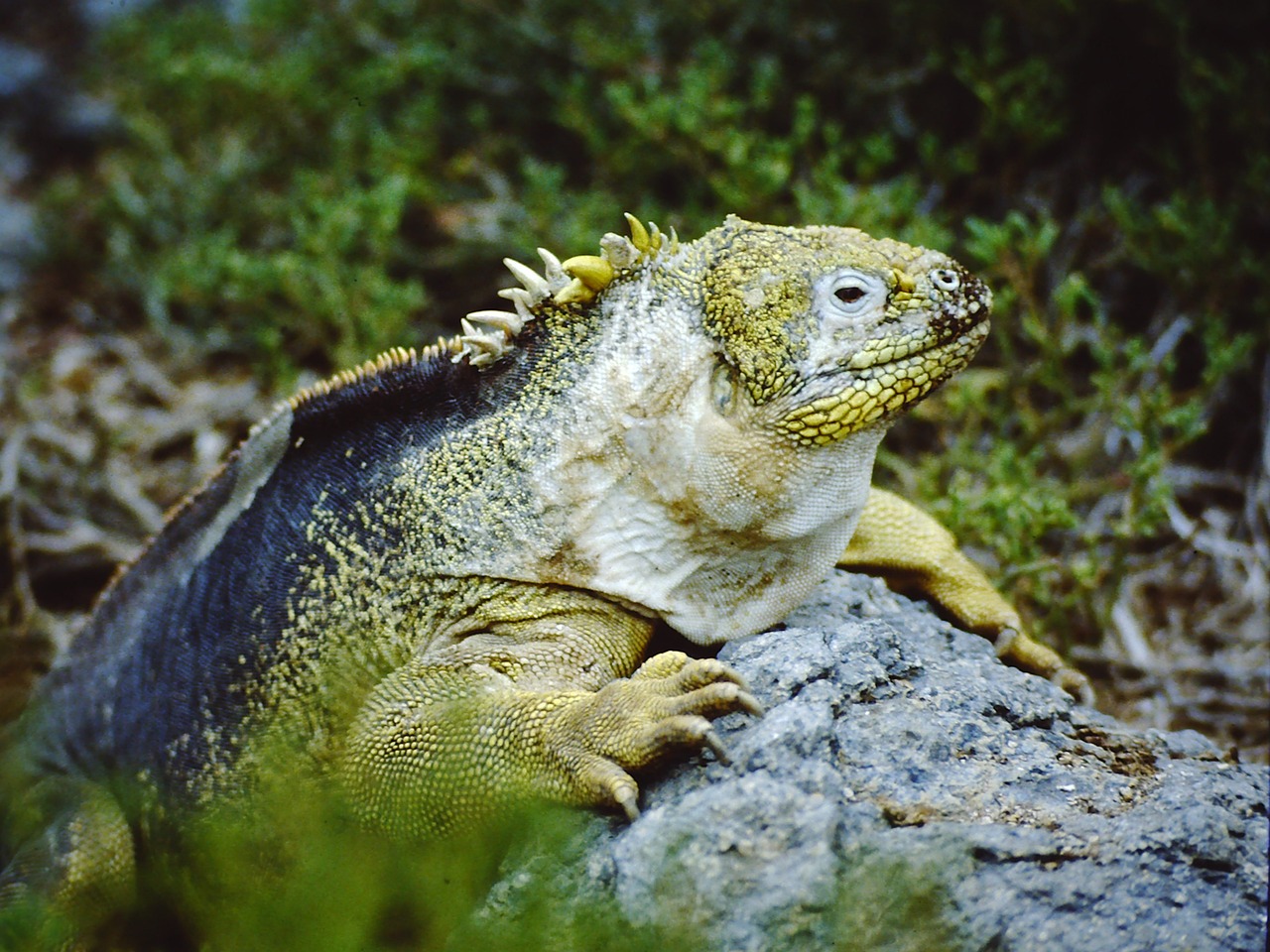
The Role of Natural Selection
Natural selection is often described as the engine of evolution, a concept that explains how certain traits become more common in a population over generations. Imagine a bustling city where only the fittest can thrive; similarly, in nature, those organisms best suited to their environments are the ones that survive to pass on their genes. It's a bit like a game of survival of the fittest, but here, "fittest" doesn’t necessarily mean the strongest. It can also refer to those who are better adapted to their surroundings, whether that be through speed, camouflage, or even social behaviors.
To break it down, natural selection operates through several key mechanisms:
- Variation: Within any given population, individuals exhibit variations in their traits, such as size, color, and behavior. These differences can be influenced by genetic mutations and environmental factors.
- Competition: Resources such as food, mates, and shelter are limited. Organisms must compete for these resources, leading to a natural struggle for existence.
- Survival: Those individuals with traits that give them an advantage in their environment are more likely to survive and reproduce. This is where the concept of "survival of the fittest" truly comes into play.
- Reproduction: The survivors pass on their advantageous traits to their offspring. Over many generations, these beneficial traits become more common in the population.
Consider the classic example of the peppered moth during the Industrial Revolution in England. Initially, the lighter-colored moths thrived against the backdrop of lichen-covered trees. However, as pollution darkened the trees, darker moths became less visible to predators. Consequently, the population shifted, showcasing how natural selection can lead to rapid changes in species in response to environmental pressures.
Natural selection doesn’t operate in isolation; it interacts with other evolutionary forces such as genetic drift and gene flow. These forces can influence the genetic makeup of a population, sometimes counteracting the effects of natural selection. For instance, in small populations, random events can lead to significant changes in allele frequencies, which may overshadow the advantages conferred by natural selection.
As we delve deeper into the role of natural selection, it’s essential to understand that it’s not a linear process. Evolution is messy and unpredictable, shaped by a myriad of factors including climate change, habitat destruction, and human intervention. This complexity makes the study of evolution a fascinating yet challenging endeavor. Scientists continue to uncover new layers of understanding regarding how natural selection operates in concert with other evolutionary mechanisms, revealing the intricate tapestry of life on Earth.
In conclusion, natural selection is a fundamental concept that helps explain the diversity of life we see today. It serves as a reminder that evolution is an ongoing process, constantly reshaping the organisms that inhabit our planet. As we face new challenges, from climate change to habitat loss, understanding the principles of natural selection can provide valuable insights into how we can better protect our planet’s biodiversity.
- What is natural selection? Natural selection is the process through which certain traits become more common in a population due to the advantages they confer in a given environment.
- How does natural selection differ from evolution? While natural selection is a mechanism of evolution, evolution encompasses all changes in the genetic makeup of populations over time, including those caused by genetic drift and gene flow.
- Can natural selection lead to new species? Yes, over long periods, natural selection can contribute to the development of new species, particularly when populations become isolated and adapt to different environments.
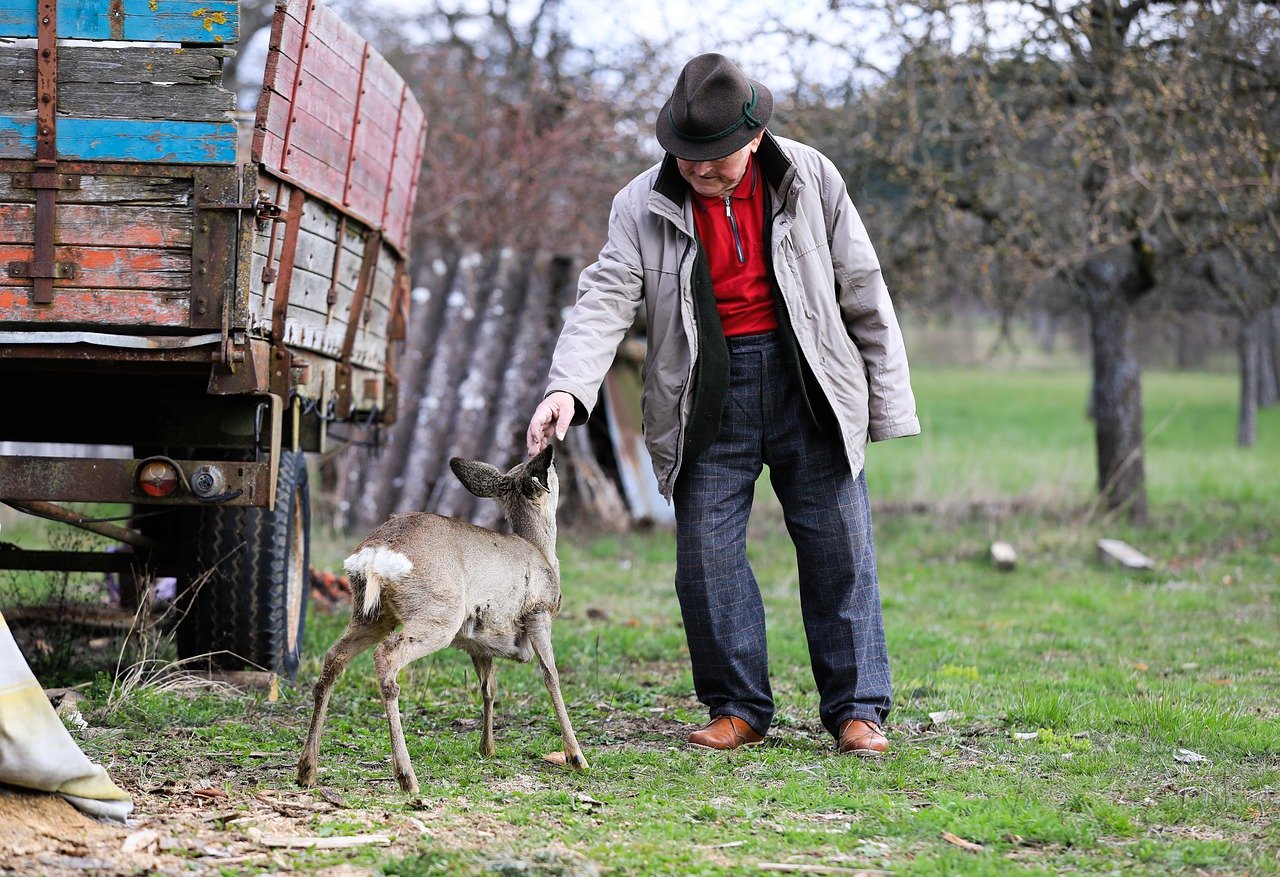
Adaptive Traits in Early Hominins
When we dive into the fascinating world of early hominins, we uncover a tapestry of adaptive traits that allowed these ancient beings to navigate the challenges of their environment. Imagine living in a world where survival depended not just on strength, but on a suite of skills and characteristics that evolved over millennia. Early hominins, our distant ancestors, developed several key traits that were crucial for their survival and adaptation.
One of the most significant traits was bipedalism. This ability to walk upright on two legs not only freed the hands for tool use but also offered a better vantage point to spot predators and prey. Bipedalism marked a pivotal shift in the evolutionary narrative, allowing early hominins to traverse vast savannas with greater efficiency. This transition from a quadrupedal stance to bipedalism is often likened to a transformative leap in the evolutionary journey, akin to discovering a new superpower!
Furthermore, the development of larger brains was another remarkable adaptive trait. As hominins evolved, their brain size increased, leading to enhanced cognitive abilities. This change facilitated complex problem-solving, social interactions, and the creation of tools. Imagine having a toolbox filled with not just physical tools but also the mental capacity to innovate and collaborate with others. This cognitive leap was essential for survival in a world filled with uncertainties.
In addition to physical traits, early hominins exhibited social behaviors that were crucial for their survival. Living in groups provided safety in numbers, and cooperative hunting and gathering became a hallmark of their lifestyle. The ability to communicate and share knowledge within these groups laid the foundation for cultural evolution. It’s fascinating to think about how these early social structures were the precursors to the complex societies we see today.
To summarize the adaptive traits of early hominins, we can look at a simple table that highlights these key characteristics:
| Adaptive Trait | Description |
|---|---|
| Bipedalism | Walking on two legs, allowing for tool use and improved visibility. |
| Larger Brains | Enhanced cognitive abilities for problem-solving and social interaction. |
| Social Behaviors | Cooperative living and communication for survival and knowledge sharing. |
In conclusion, the adaptive traits of early hominins were not just random occurrences; they were essential adaptations that shaped the trajectory of human evolution. These traits allowed our ancestors to thrive in a variety of environments, paving the way for the diverse and complex beings we are today. As we reflect on these adaptations, it becomes clear that understanding our past is crucial in navigating our future.
- What is bipedalism, and why is it important? Bipedalism refers to the ability to walk on two legs, which allowed early hominins to use their hands for tools and improve their ability to spot danger.
- How did larger brains benefit early hominins? Larger brains enhanced cognitive functions, enabling problem-solving, social interaction, and tool-making.
- What role did social behaviors play in the survival of early hominins? Social behaviors, such as living in groups, provided safety and facilitated cooperation in hunting and gathering, essential for survival.
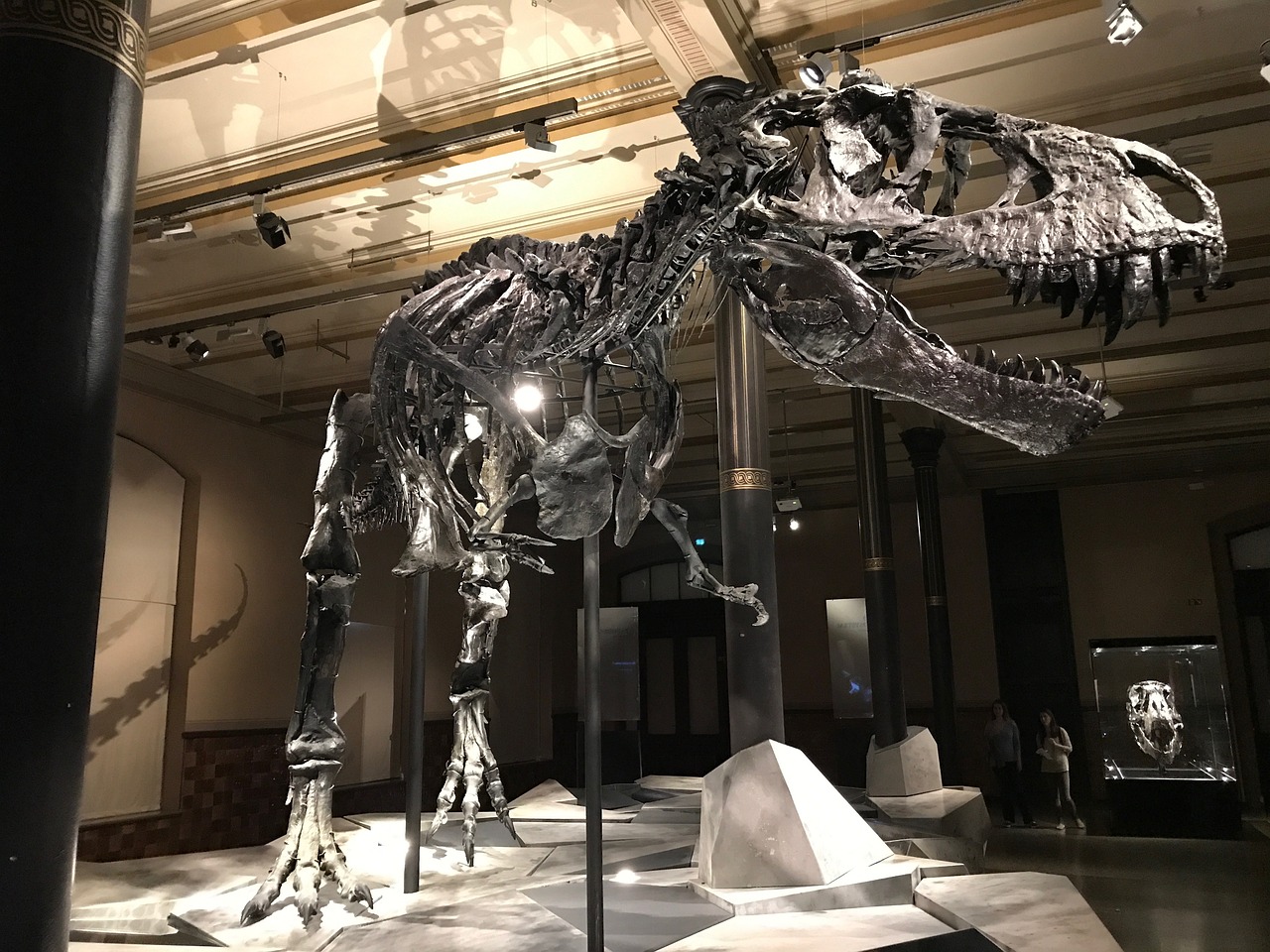
Human Adaptability in Changing Environments
Human adaptability is nothing short of remarkable, a testament to our species' ability to navigate the complexities of diverse environments. From the icy tundras of the Arctic to the scorching deserts of Africa, humans have not only survived but thrived in conditions that would challenge even the hardiest of creatures. This adaptability is not merely a product of biological evolution; it is a rich tapestry woven from the threads of culture, technology, and social structures. Imagine a chameleon, effortlessly changing its colors to blend in with its surroundings—this is akin to how humans have learned to adjust their behaviors and practices in response to environmental challenges.
One of the most fascinating aspects of human adaptability is our capacity for cultural evolution. Unlike many species that rely solely on genetic changes over generations, humans can develop new strategies and tools in a relatively short time. For instance, consider how agricultural practices evolved in response to climate changes. Early humans transitioned from nomadic lifestyles to settled farming communities, which allowed them to cultivate crops and domesticate animals. This shift not only changed their dietary habits but also laid the groundwork for complex societies. The table below illustrates some key milestones in human adaptability:
| Era | Adaptation | Impact |
|---|---|---|
| Paleolithic | Hunting and Gathering | Survival through mobility and resourcefulness |
| Neolithic | Agriculture | Formation of settled communities |
| Industrial | Urbanization | Mass production and technological advancements |
| Digital | Information Age | Global connectivity and instant communication |
Furthermore, the interplay between biology and culture is evident in our ability to adapt to various climates. For example, populations living in high-altitude regions, such as the Andes or Himalayas, have developed physiological adaptations that enhance their oxygen usage. This is a biological response to environmental pressures, showcasing how our bodies can evolve in tandem with cultural practices like agriculture and settlement. It’s as if we are both sculptors and clay, shaping our existence while simultaneously being shaped by it.
The importance of adaptability is further underscored by the challenges posed by climate change. As temperatures rise and weather patterns shift, humans must innovate and adapt to ensure survival. This has led to a renewed focus on sustainable practices, such as renewable energy sources and conservation efforts. We are witnessing a cultural shift where communities are coming together to combat environmental issues, illustrating that adaptability is not just about individual survival but also about collective responsibility.
In conclusion, human adaptability in changing environments is a multifaceted phenomenon that highlights our unique position in the natural world. It is a blend of biological evolution and cultural ingenuity, allowing us to face challenges head-on. As we continue to navigate an ever-changing planet, our capacity to adapt will be crucial in determining our future survival and success. After all, in the grand tapestry of life, adaptability is the thread that binds us to the past while propelling us into the future.
- What are some examples of human adaptability?
Humans have adapted through various means, such as developing agriculture, creating advanced technologies, and changing social structures to meet environmental challenges.
- How does culture influence human evolution?
Cultural practices can drive biological changes, as seen in the development of lactose tolerance in populations that relied on dairy farming.
- What role does technology play in human adaptability?
Technology enhances our ability to adapt by providing tools and solutions for survival, such as climate-controlled shelters and renewable energy sources.

Philosophical Implications of Evolutionary Theory
The are profound and far-reaching, challenging our understanding of what it means to be human. As we delve into the origins of our species, we are compelled to confront questions that touch on the very essence of our identity. For instance, if we are the product of evolutionary processes, what does that say about our free will? Are our thoughts and actions merely the result of biological impulses, or do we possess a genuine capacity for choice? This inquiry leads us to consider the relationship between biology and morality, as well as the nature of consciousness itself.
Moreover, evolutionary theory invites us to rethink traditional views on human exceptionalism. Many cultures have long held the belief that humans occupy a unique position in the natural world, distinct from other species. However, the evidence of our shared ancestry with other hominins and the continuity of evolutionary processes suggests that we are not so separate after all. This realization can be both humbling and unsettling, as it forces us to reconsider our responsibilities toward other living beings and the environment.
To further explore these philosophical dimensions, we can identify several key areas of inquiry that arise from evolutionary theory:
- Identity: What constitutes our identity if we are products of evolution? Is it our consciousness, our culture, or our biology that defines us?
- Morality: How do we derive our moral values in light of an evolutionary framework? Are our ethical principles simply adaptations for survival?
- Free Will: In a world shaped by natural selection, to what extent are we truly free to make choices?
These questions are not merely academic; they have real-world implications. As we grapple with issues like climate change, biodiversity loss, and conservation, the insights gained from evolutionary theory can guide our ethical considerations. For instance, understanding our place within the broader ecosystem can encourage a sense of stewardship over the planet, fostering a deeper connection to the world around us.
Ultimately, the philosophical implications of evolutionary theory compel us to engage in a dialogue that transcends traditional boundaries. By integrating insights from philosophy, biology, and anthropology, we can cultivate a more nuanced understanding of our origins and existence. This interdisciplinary approach not only enriches our comprehension of human evolution but also encourages a more responsible and ethical engagement with the world.
- What is the significance of evolutionary theory in understanding human identity?
Evolutionary theory challenges traditional notions of human exceptionalism, suggesting that our identity is shaped by a complex interplay of biological, cultural, and environmental factors. - How does evolution influence our moral values?
The evolutionary perspective invites us to examine the origins of our moral beliefs, questioning whether they are innate or socially constructed adaptations for survival. - Can we have free will if we are products of evolution?
This question remains a topic of philosophical debate, with some arguing that our choices are influenced by biological predispositions while others assert the existence of genuine agency.

Interdisciplinary Approaches to Understanding Evolution
When we think about human evolution, it’s easy to get lost in the intricate details of genetics or the fascinating fossils that tell the story of our ancestors. However, to truly grasp the complexity of our evolution, we need to embrace an interdisciplinary approach. This means pulling insights from various fields such as philosophy, anthropology, and biology to create a more holistic understanding of what it means to be human. Each discipline offers unique perspectives that, when combined, illuminate the multifaceted nature of our origins.
For instance, philosophy challenges us to ponder the ethical implications of our evolutionary journey. It asks questions like: What does it mean to be human in the grand scheme of evolution? Are we merely products of our biology, or do we possess free will that transcends our genetic makeup? This philosophical inquiry is vital because it helps us navigate the moral landscape shaped by our understanding of evolution.
On the other hand, anthropology digs deep into the cultural aspects of human evolution. It explores how our ancestors lived, interacted, and adapted to their environments. By examining artifacts, social structures, and cultural practices, anthropologists provide context that enhances our understanding of biological evolution. For example, consider how the development of tools not only reflects cognitive evolution but also influences social dynamics and survival strategies.
Biology, of course, is at the heart of understanding the mechanisms of evolution. It provides the scientific framework that explains how traits are passed down through generations via genetics. But biology doesn’t operate in a vacuum; it intersects with cultural practices, which can alter evolutionary pathways. This is where the concept of gene-culture coevolution comes into play, illustrating how cultural practices can influence biological evolution and vice versa.
To illustrate this interdisciplinary approach, let’s look at a simple table that summarizes the contributions of each field:
| Field | Contribution to Understanding Evolution |
|---|---|
| Philosophy | Explores ethical implications and the essence of humanity. |
| Anthropology | Examines cultural practices and social structures of early humans. |
| Biology | Provides insights into genetic mechanisms and evolutionary processes. |
By integrating these perspectives, we can answer complex questions about our past and present. For example, how did early humans' ability to create art impact their social structures? What role did language play in shaping human identity? These questions highlight the importance of a comprehensive approach to studying evolution.
In conclusion, understanding human evolution is not just about tracing our biological lineage; it’s about exploring the intricate web of relationships that define our existence. By embracing an interdisciplinary approach, we can better appreciate the rich tapestry of influences that have shaped us over millennia, ultimately leading to a more profound understanding of what it means to be human.
- What is the significance of interdisciplinary approaches in studying evolution?
Interdisciplinary approaches allow us to integrate various perspectives, enriching our understanding of human evolution by considering biological, cultural, and ethical dimensions. - How does philosophy contribute to our understanding of evolution?
Philosophy challenges us to think critically about the implications of evolution on human identity, free will, and ethics, prompting deeper inquiry into what it means to be human. - What role does anthropology play in evolutionary studies?
Anthropology provides insights into the cultural and social aspects of human evolution, helping us understand how our ancestors lived and adapted to their environments.

The Influence of Culture on Evolution
The relationship between culture and evolution is like a dance, where both partners influence each other's movements and steps. Culture, defined as the collection of beliefs, practices, and values shared by a group, profoundly impacts human evolution. It’s not just about survival of the fittest in a biological sense; it’s also about how social structures, traditions, and innovations shape the way humans adapt over generations. For instance, consider how the advent of agriculture transformed human societies. This shift didn’t merely change our diet; it led to the development of permanent settlements, which in turn fostered complex social hierarchies and diverse cultural practices.
One fascinating aspect of this cultural influence is the concept of gene-culture coevolution. This theory posits that cultural practices can impact genetic evolution. For example, populations that historically practiced dairy farming developed a higher prevalence of lactose tolerance due to the dietary benefits of consuming milk. This is a prime example of how a cultural shift can lead to biological changes over time. It illustrates that while our genes provide a framework for our existence, it is culture that often fills in the details, shaping our behaviors and even our biological traits.
Moreover, culture can also play a crucial role in shaping our responses to environmental challenges. When faced with climate change or resource scarcity, human societies have historically adapted through innovation and collaboration. This adaptability is not purely biological; it’s deeply rooted in cultural responses. For instance, indigenous communities around the world have developed unique practices that promote sustainability and environmental stewardship, showcasing how cultural knowledge can enhance survival in changing conditions.
To further illustrate the dynamic interplay between culture and evolution, let’s look at some key influences:
- Social Structures: The way societies are organized can dictate reproductive strategies, resource allocation, and even conflict resolution, all of which can influence evolutionary outcomes.
- Language: The development of complex language has allowed for the transmission of knowledge across generations, enhancing learning and cultural evolution.
- Technology: Innovations such as tools and agriculture have not only changed lifestyles but also redefined human interactions with the environment.
In summary, the influence of culture on evolution is a multifaceted phenomenon that underscores the importance of interdisciplinary approaches in understanding our past and present. As we continue to explore our evolutionary journey, it becomes increasingly clear that culture is not just a byproduct of human existence; it is a driving force that shapes who we are as a species.
- How does culture affect human evolution?
Culture influences human evolution by shaping behaviors, social structures, and environmental interactions, leading to biological adaptations over time. - What is gene-culture coevolution?
Gene-culture coevolution is the theory that cultural practices can influence genetic evolution, as seen in populations that develop traits like lactose tolerance due to dietary changes. - Can cultural practices lead to biological changes?
Yes, cultural practices can lead to biological changes by creating selective pressures that favor certain traits within a population. - Why is interdisciplinary research important in studying evolution?
Interdisciplinary research combines insights from various fields, such as philosophy, anthropology, and biology, providing a more comprehensive understanding of human evolution.

Ethics and Evolutionary Biology
The intersection of ethics and evolutionary biology is a captivating realm that provokes deep reflection on our responsibilities as stewards of the planet. As we delve into the evolutionary narrative of humanity, we cannot ignore the moral implications that arise from our understanding of our place within the biosphere. It's a bit like realizing you're not just a player in a game but also the referee, responsible for ensuring fair play. What does it mean to be a part of a larger system where every action can ripple through the fabric of life?
One of the most pressing ethical questions is how our evolutionary legacy influences our treatment of other species. As we uncover the intricate web of life shaped by natural selection, we must ask ourselves: Do we have a moral obligation to protect the biodiversity that has evolved over millennia? This question is not just philosophical; it has real-world implications. For instance, the extinction rates of species are accelerating, largely due to human activities. The ethical dilemma here is whether we should intervene to preserve endangered species or allow nature to take its course, even if it means losing them forever.
Moreover, the concept of gene-culture coevolution highlights the interplay between our biological evolution and cultural practices. As we adapt culturally, we also influence our biological evolution. This raises intriguing ethical questions about cultural practices that may harm other species or ecosystems. For example, consider traditional hunting practices. While they may be rooted in cultural heritage, they can lead to significant ecological consequences. Balancing cultural identity with ecological responsibility is a challenge that requires thoughtful consideration.
To further explore these ethical dimensions, we can examine the following considerations:
- Conservation Efforts: How do we prioritize conservation in the face of economic development? Are we willing to sacrifice short-term gains for long-term sustainability?
- Animal Rights: As we understand more about the cognitive abilities of other species, how should this influence our ethical stance on their treatment?
- Environmental Responsibility: What role do we play in mitigating climate change and protecting habitats, given our evolutionary impact on the planet?
In essence, the ethical implications of evolutionary biology compel us to reconsider our actions and their consequences. They challenge us to think critically about the legacy we leave for future generations. As we navigate these complex issues, it becomes increasingly clear that our evolutionary journey is not just about survival; it's also about thriving in harmony with the world around us.
Q1: How does evolutionary biology inform our ethical responsibilities?
A1: Evolutionary biology provides insights into the interconnectedness of all life forms, urging us to consider the consequences of our actions on biodiversity and ecosystems.
Q2: What is gene-culture coevolution?
A2: Gene-culture coevolution refers to the way cultural practices can influence biological evolution and vice versa, highlighting the dynamic relationship between our biology and cultural identity.
Q3: Why is conservation important in the context of evolution?
A3: Conservation is crucial as it helps preserve the genetic diversity and ecological balance that have evolved over time, ensuring the survival of various species and ecosystems.
Q4: How can we balance cultural practices with ecological responsibility?
A4: Balancing cultural practices with ecological responsibility requires open dialogue, education, and a willingness to adapt traditions to ensure they do not harm the environment.
Frequently Asked Questions
- What is human evolution?
Human evolution refers to the lengthy process of change by which people originated from apelike ancestors. It encompasses both biological and cultural evolution, highlighting the complex interplay between our genetic makeup and our environment.
- How does philosophy contribute to our understanding of human evolution?
Philosophy offers a framework for exploring the implications of evolutionary theory, including questions about consciousness, morality, and what it means to be human. It encourages critical thinking about our existence and the ethical dimensions of our evolutionary journey.
- What are the key scientific discoveries in human evolution?
Recent advancements in genetics and paleontology have unveiled the intricate relationships between ancient hominins and modern humans, revealing how evolutionary changes occurred over time. Discoveries like the Denisovans and Neanderthals have reshaped our understanding of human ancestry.
- What role does natural selection play in human evolution?
Natural selection is a core principle of evolutionary biology that explains how advantageous traits become more common in a population. This process has shaped the physical and behavioral characteristics of modern humans, influencing everything from our intelligence to our social behaviors.
- How did adaptive traits in early hominins influence human evolution?
Early hominins developed various adaptive traits, such as bipedalism and tool use, which allowed them to survive in diverse environments. These traits set the stage for the evolutionary path that ultimately led to modern human characteristics.
- Why is human adaptability important for survival?
The ability to adapt to changing environments has been crucial for human survival. This adaptability showcases the dynamic relationship between our biological traits and cultural practices, illustrating how we have thrived in various settings throughout history.
- What are the philosophical implications of evolutionary theory?
Evolutionary theory challenges traditional notions of humanity by raising questions about free will, morality, and identity. It forces us to reconsider our place in the natural world and the responsibilities we hold towards other species and the environment.
- How do interdisciplinary approaches enhance our understanding of evolution?
Combining insights from philosophy, anthropology, and biology fosters a more comprehensive understanding of human evolution. This interdisciplinary dialogue helps address complex questions about our origins and existence, leading to richer insights.
- What is gene-culture coevolution?
Gene-culture coevolution refers to the interaction between genetic evolution and cultural practices. It demonstrates how cultural behaviors can influence biological evolution, such as dietary choices affecting genetic traits in populations over generations.
- What ethical questions arise from evolutionary biology?
The intersection of ethics and evolutionary biology raises important discussions about our responsibilities toward other species and the environment. It prompts us to consider conservation efforts, biodiversity, and the moral implications of our actions as a species.







